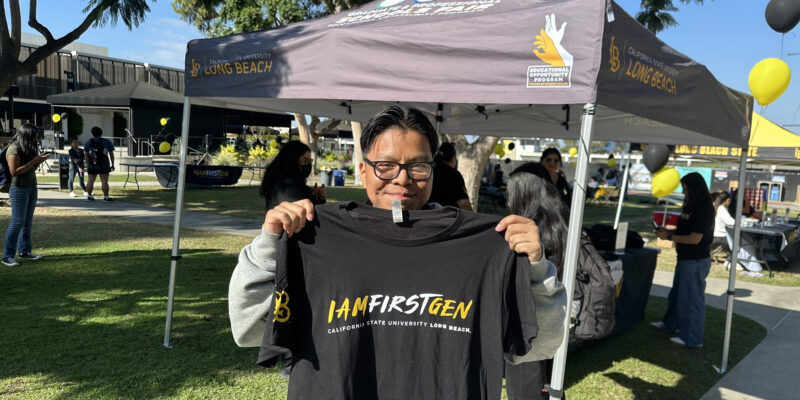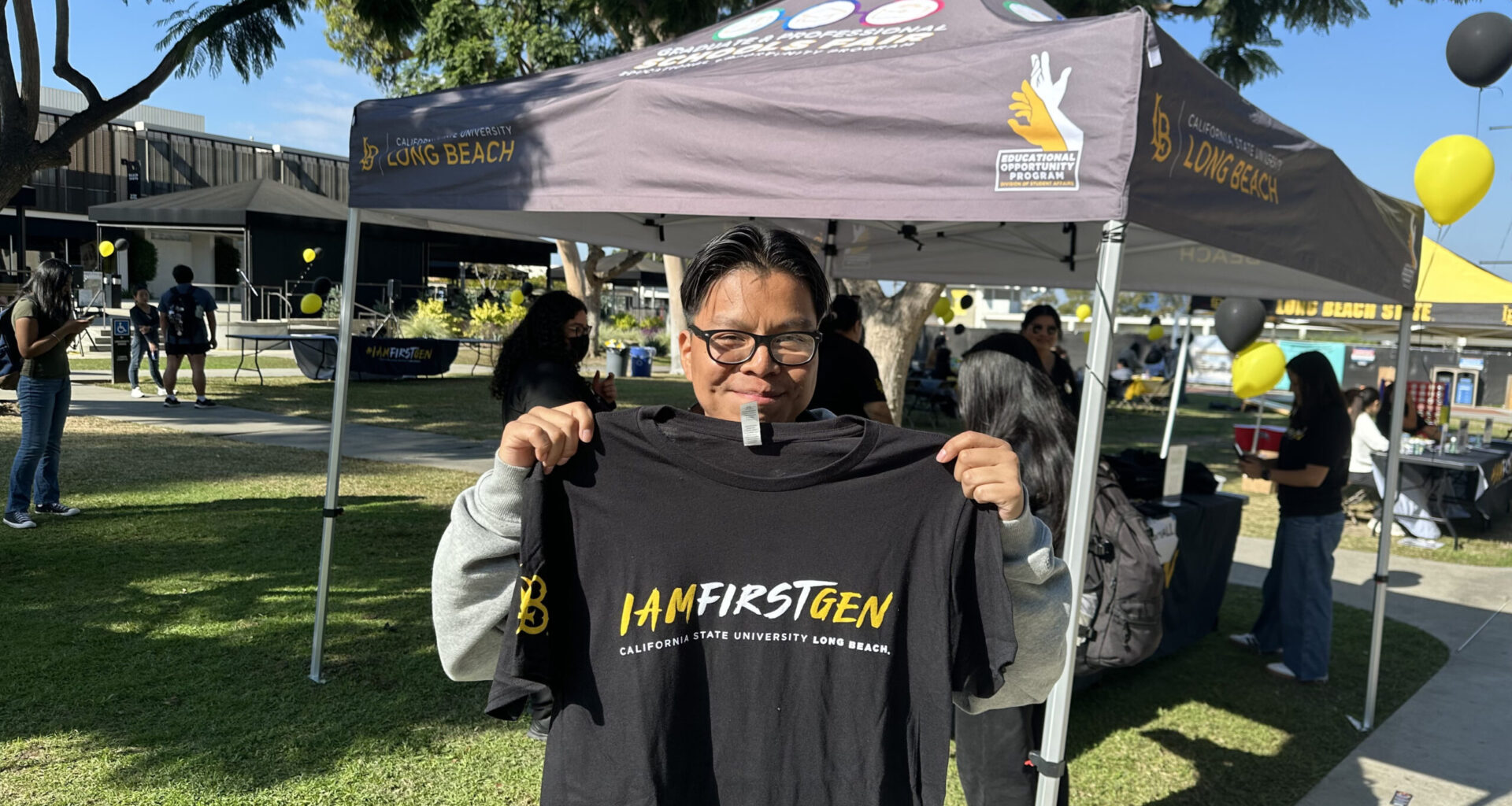
Giovanni Pelico, a third-year cinematic arts cinematography student, poses with his free shirt outside one of the tables on Nov 6. Josh Gentle | Long Beach Current
About a dozen Long Beach State student services tables were set up by the Speaker’s Platform outside of the Beach Shops Bookstore on Nov. 6 to celebrate first-generation students.
National First-Generation College Celebration Day is on Nov. 8th. The date commemorates the 1965 Higher Education Act, which sought to increase access to education for underrepresented students.
The event was dedicated to the celebration of first-generation students, but also an attempt to ensure their continued success. Organizations including TRiO Student Support Services, Basic Needs and GenExcel mentorship program lined the bustling walkways of upper campus.
The complimentary Subway sandwiches and drinks set out for attending students disappeared almost instantly, and free t-shirts were passed out in copious amounts.
Brandi Pierre, academic skills coach at TRiO Student Support Services, described her first-generation experience as “being a trailblazer for the people before me, [and] an example for them to be able to see if I could do it, they can do it as well.”
TRiO Student Support Services is an organization at CSULB designed primarily for low-income, first-generation or disabled students to support their needs as they navigate higher education.
As a skills coach at TRiO, Pierre said her job allows her to give students the confidence to ask for help.
“We’re gonna want to help people have what’s called a sense of belonging,” she said.
Another table that garnered a continuous flow of interested students was Basic Needs.
Basic Needs seeks to support all students, with a primary focus on serving first generation students who seek their assistance. Some of these services include food, financial and housing support, especially for students with children.
“Most [first-generation students] do suffer more in food insecurity,” Jiovanni Fernandez, CalFresh outreach assistor and third-year nursing major, said. “I suffered through food insecurity when I first came to school on campus.”
Basic Needs ties academic success to a stable home life and tries to alleviate the struggles that some students face that might hinder their educational pursuits.
Fernandez, a first-generation student, initially wanted to attend college to see through his parents’ dream of completing college. He felt a responsibility as their firstborn child.
“I think [being first-generation] means empowerment and [believing] we can do something,” he said.
The GenExcel mentorship program was present, promoting their services.
Designed specifically for first-generation college students, GenExcel matches students with student and faculty mentors based on background and personal interests to best fit their needs.
“They work a lot with Beach transfers, really anything within the Student Success Center,” said Cally Arrucha, first-generation mentor at GenExcel and third-year criminal justice student.
To Arrucha, being a first-generation student means making an impact in a community where people are underrepresented.
Her parents’ sacrifices for her siblings and her allowed her to attend college. She thinks of them when she forces herself to go to school on days she doesn’t want to.

